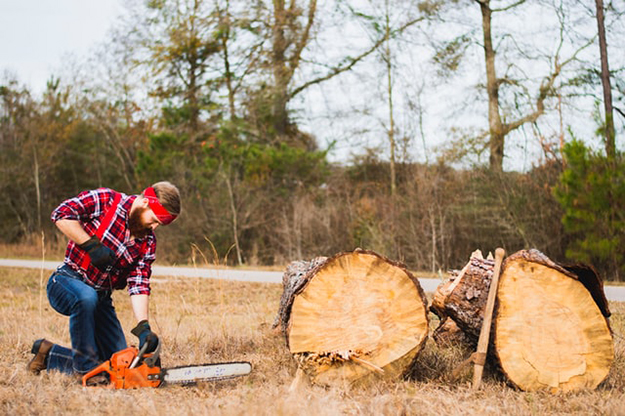7 Tips For Off Grid Living
Are you considering off grid living? Before you do, here’s what you should know before leaving the old comforts of your life behind.
Things You Need for Successful Off Grid Living
Living off-grid is a lofty goal for most pampered Americans. You see, we are used to a certain level of comfort and convenience.
To be quite honest, it is a lot! We are much hungrier for convenience than most nations in the world.
Adventure seems to be the next stage beyond convenience. The American people, like spoiled rich kids, just want to feel ALIVE!
They are seeking out this excitement in many ways. Not the least of which is the idea of heading out into the hinterlands and taking on that neo pioneering lifestyle.
Living detached, in tiny homes, from the world that spawned them. It’s an honorable goal and one that preppers can really understand because these people are as close to self-reliance and independence as one can get.
To help you start on off grid living, try heeding our tips below:
1. Focus on the Water System
One of the biggest focuses at the beginning of your off grid living adventure should be to plan to have plenty of water. You will also want to consider what your expectations of that water will be.
Are you going to want hot water without having to boil it yourself? There are many solar water heater designs.
Do you plan on reusing grey water to wash things?
How you set your water system up in the beginning, the skeleton of it will likely be how it exists for a long time.
You will have a lot more things to consider so spend some time upfront on developing a system for catching plenty of water, storing it, heating it, and using it.
2. Manage Your Power
View this post on InstagramOMG, you guys!!! After living 10 years without any #electricity whatsoever, #itshappening thanks to @andyy545 and @p.k.electric
Love you guys! #offgridliving #solar #nonelectric #solarpower #solarpanels #climatechange #homesteading #appalachianohio
Your life will most likely be powered by propane and solar power. These two power sources will go a long way and keep you warm and electronics powered.
Lights will stay on because of those solar panels. This is an important consideration.
When you don’t need lights or charging power, DON’T USE IT! Remember, on cloudy days you will be generating less power.
You really don’t want those batteries to go down to empty. That is a problem so manage your power and conserve, conserve, conserve.
3. Learn to Do Without
Our hyper convenient lifestyle has made it awfully hard for Americans to do without. If we want it, we can have it at our door in two hours.
The recent pandemic has changed that a bit, but we still expect to be well-fed with plenty of toys to distract us.
Living off-grid is about simple living. It’s about slowing down and enjoying the present. It’s not about what new thing is coming from Amazon.
Despite our addiction to convenience, you can quickly learn to enjoy a life that doesn’t involve all the trinkets. Just be prepared to take that leap.
4. Consider the Internet

What do you need the internet for? Be honest. It might be a huge part of how you make a living.
You can have an Internet connection and be off-grid. It’s very possible.
In fact, there are prepper writers who make a decent living writing from their off-grid homestead!
Consider things like satellite internet or other means that can be effective. Pay for what you need and quickly cut loose companies that cannot provide the type of internet service you require.
5. Compost EVERYTHING
A compost pile, or several, is an important part of any off-grid homestead. The stinky reality is that composting toilets are way better than septic systems.
You will have to deal with your own bodily waste in some way and the composting toilet is the best way to handle it. You can use this humanure to feed row crops to produce even more food.
While this might be shocking, it’s all part of what you must consider when living off-grid.
6. Plenty of Wood and Tools

When it comes to heating and cooking, you are going to need a lot of wood. Propane heat is an option but who moves off-grid to warm themselves in front of anything other than a wood fire?
You will be on the hunt for standing deadwood and that will make for the best firewood you can get your hands on.
Of course, you will need a collection of tools to make this happen.
If you are going to start heating and cooking with wood fires you should have the following items on hand.
- Chainsaw
- Axes
- Mauls
- Linseed oil for treating the handles of your axes
- Bar and chain oil for your chainsaws
- Extra Chains
- Gasoline
- Chain Sharpener
- Puck Sharpener
A lean-to or some way of covering the wood would be a good idea, too!
7. Repairs and Homesteading Books
View this post on InstagramThe Weekend Homesteader by Anna Hess • Picked this book up from the local library and, though I will say that I didn't read every section, it was really interesting and engaging. I stuck with those subjects that are more interesting to myself (overall philosophy, tools, animals, and gardening), but it was a good balance of a basic overview of homesteading activities as well as giving some great practical advice for what suburban homeowners can start doing immediately to realize a homesteading dream. • (Finished March 10, 2020) • #bookstagram #booksofinstagram #readersofinstagram #reading #bookshelf #bookstoread #bookstagrammer #readers #whattoread #whatimreading #currentlyreading #goodreads #modernhomesteader #homesteading #theweekendhomesteader
Internet and power constraints are going to always be a consideration. You may not have the luxury of keeping YouTube open for hours while you make repairs.
You should consider creating a library of homesteading and repair books that will allow you to address the many issues that come with off grid living.
Things break and your list of projects will be ever-growing. Having a decent library to turn to can make these projects and repairs much easier.
- Encyclopedia of Country Living
- Weekend Homesteading
- Home Repair Wisdom & Know-How
- Fixin Stuff
- Home Maintenance for Dummies
You Can Do It, Just Be Prepared
The romance of off grid living and roughing it is real. In this modern age, there is a strong allure to cut the cord and get back to the human path.
You can achieve this on your own, but you need to be prepared to learn new skills and face new challenges.
The important thing to consider when living off-grid is that you can fail. You can live off-grid for 5 years and call it in.
There is no rule that you must live this way for the rest of your life. In those five years, however, you will learn a lot about the land and even more about yourself.
When do you plan to start off grid living and why? We’d love to hear from you in the comments section!
Up Next:
- How To Collect And Store Water For Survival And Off Grid Living
- 10 Things to Know Before Going Off Grid
- What Is The Real “Startup Cost” of Living Off Grid







